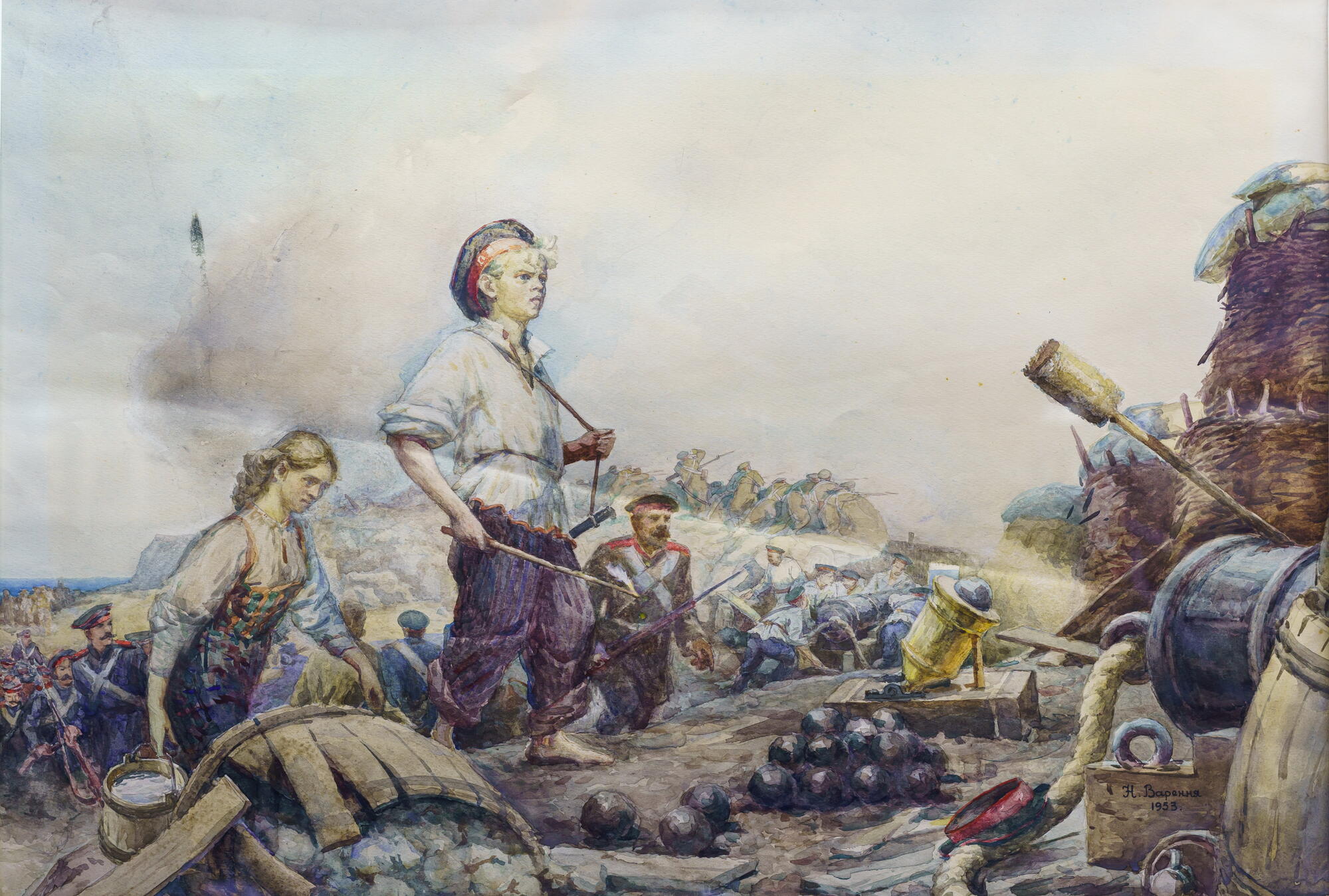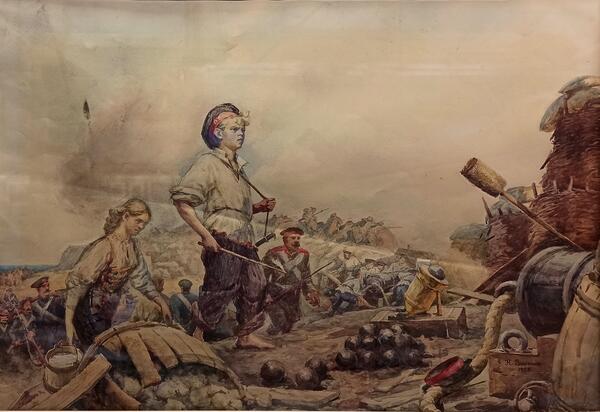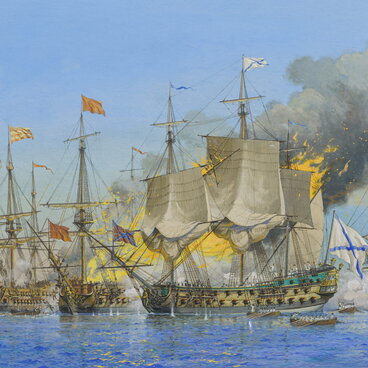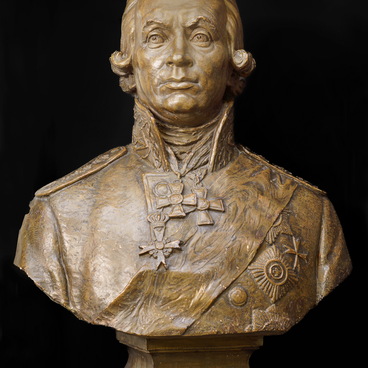Timofey Pishchenko, a 2nd rank seaman of the 37th naval barracks was a gunner and artillerist of the gun battery on the 4th bastion that was considered one of the most dangerous places in the besieged Sevastopol. Each day, this bastion was continuously bombarded with over two thousand enemy shells. The sailor’s ten-year-old son Nikolay known as Kolya was always there at the side of his father: his mother had died long before, and the boy lived with his father at the naval barracks. From the very first day, Kolya was assigned with important tasks: he was asked to wipe out gunpowder residue from gun barrels after each shot by using a sponge — a large round horsehair brush on a long stick — and then give powder bags to artillerists.
During one of the artillery attacks, the gunner Timofey Pishchenko suffered a deadly wound, and Kolya was left an orphan. The battery commanding officer immediately ordered to transfer the boy to a less dangerous battery closer to the city, but there was not a single completely safe place in the besieged Sevastopol since most of the streets and squares were exposed to fire, and the enemy could attack anywhere. The commander and fellow sailors took to the smart Kolya Pishchenko at once, and he was given an important task: there were nine small mortars taken from some small ship that required servicing. An older sailor taught Kolya Pishchenko, and the boy soon became good at sending mortar shells into the very midst of the advancing enemy. The boy even took part in hand-to-hand combat when the French came particularly close to the battery. When the situation would become particularly dangerous, and the commander would try to send the young hero away from the battery, Kolya would say as a real grown-up,
During one of the artillery attacks, the gunner Timofey Pishchenko suffered a deadly wound, and Kolya was left an orphan. The battery commanding officer immediately ordered to transfer the boy to a less dangerous battery closer to the city, but there was not a single completely safe place in the besieged Sevastopol since most of the streets and squares were exposed to fire, and the enemy could attack anywhere. The commander and fellow sailors took to the smart Kolya Pishchenko at once, and he was given an important task: there were nine small mortars taken from some small ship that required servicing. An older sailor taught Kolya Pishchenko, and the boy soon became good at sending mortar shells into the very midst of the advancing enemy. The boy even took part in hand-to-hand combat when the French came particularly close to the battery. When the situation would become particularly dangerous, and the commander would try to send the young hero away from the battery, Kolya would say as a real grown-up,



